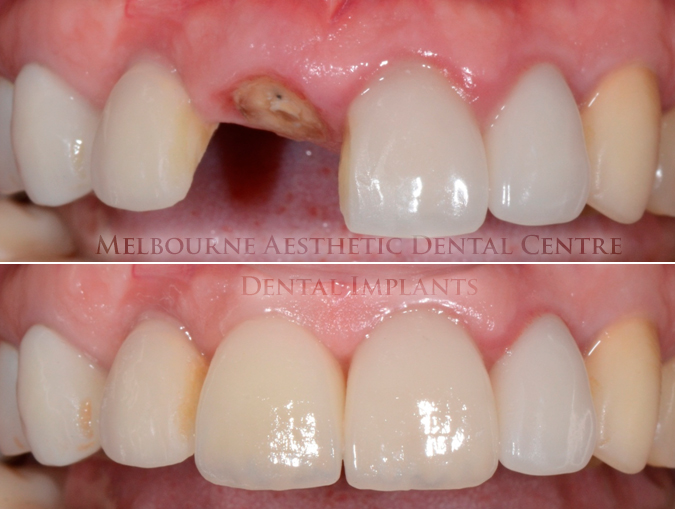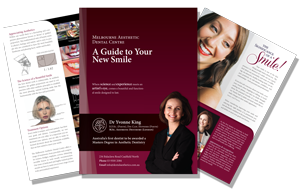Dental Implants replace teeth that have been completely removed from the mouth, root and all, by surgically implanting a metal anchor, usually made of titanium, into the jawbone beneath the gum.
Attached to the metal appliance is a ceramic or metal restoration similar to a denture, designed to look and feel like a natural, strong tooth. Eventually the surrounding bone attaches to the implant through a process called “osteointegration”, which results in an replacement tooth of incredible strength and stability.
The Advantages of Dental Implants
- Increased Bite Pressure – Implants can often restore your bite to the same strength levels as natural teeth.
- Longevity – with appropriate dental hygeine and ongoing care, implants have been seen to reliably last 20 years with few complications.
- Comfort – specially designed implants are crafted for optimum fit and functionality.
- Self-Confidence – Implants function and appear as natural teeth. There is a renewed sense of self confidence when a patient can laugh, chew and smile without concerns about missing teeth or denture.
Developing a system of artificial tooth and root implants that reliably and comfortably replaces missing teeth has long been a goal in dentistry. The use of ‘osteointegrated’ implants, pioneered by Swedish Professor P.I. Branemark over three decades ago, has created very high expectations of succesful outcomes in implant procedures.
The key behind the success of modern dental implants may be the use of titanium, a metal which has shown to be extremely compatible for intergration with bone tissue. Dr Branemarks initial implant cases involved patients with no teeth, and remarkably the success rates of those implants were nevertheless very high. It is expected that 98% of dental implants will continue to maintain functionality after 15 years.
If you would like to learn more about implant dentistry courses and training available at the Melbourne Institute of Aesthetic Dentistry, please contact us.


